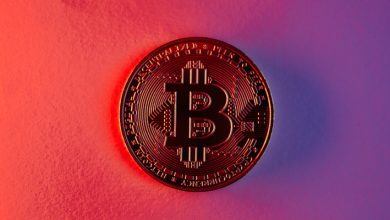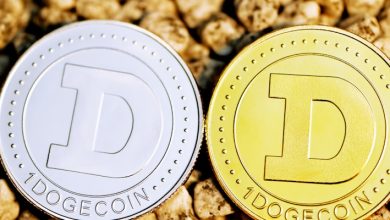The Role of NFTs in the Digital Economy

- Understanding NFTs and their impact on the digital economy
- Exploring the intersection of art and technology through NFTs
- The rise of NFTs as a new form of digital asset
- Challenges and opportunities for businesses in the NFT space
- NFTs revolutionizing the way we buy, sell, and collect digital assets
- Regulatory considerations for the growing NFT market
Understanding NFTs and their impact on the digital economy
NFTs, short for non-fungible tokens, have been making waves in the digital economy in recent years. These unique digital assets are revolutionizing the way we buy, sell, and trade digital goods. NFTs are based on blockchain technology, which ensures their authenticity and scarcity.
One of the key impacts of NFTs on the digital economy is their ability to provide creators with a new way to monetize their work. Artists, musicians, and other creators can tokenize their work as NFTs and sell them to collectors. This has the potential to disrupt traditional revenue streams and empower creators to directly benefit from the value of their creations.
Moreover, NFTs have the potential to democratize ownership of digital assets. With NFTs, anyone can own a piece of digital art, a tweet, or a virtual property. This opens up new opportunities for investment and ownership in the digital realm, allowing individuals to participate in the digital economy in ways that were previously not possible.
As NFTs continue to gain popularity, they are also raising questions about copyright, ownership, and the environmental impact of blockchain technology. It is important for stakeholders in the digital economy to understand the implications of NFTs and work towards creating a more sustainable and equitable ecosystem for digital assets.
Exploring the intersection of art and technology through NFTs
NFTs have opened up a whole new world where art and technology intersect, allowing creators to tokenize their work and sell it as unique digital assets. This has revolutionized the way we think about ownership and authenticity in the digital economy. Artists can now reach a global audience and monetize their creations in ways that were previously impossible.
By leveraging blockchain technology, NFTs provide a secure and transparent way to buy, sell, and trade digital art. This has created a thriving marketplace where artists can connect directly with collectors and fans, without the need for intermediaries. The decentralized nature of NFTs ensures that creators retain control over their work and are fairly compensated for their efforts.
The rise of NFTs has sparked a renaissance in digital art, with artists exploring new mediums and pushing the boundaries of what is possible. From virtual reality experiences to generative art created by algorithms, NFTs have enabled a new wave of creativity that blurs the lines between art and technology. This fusion of traditional artistic techniques with cutting-edge digital tools has captured the imagination of audiences around the world.
The rise of NFTs as a new form of digital asset
NFTs, or Non-Fungible Tokens, have been gaining significant traction in recent years as a novel form of digital asset. These unique tokens are built on blockchain technology, making them secure and immutable. Unlike traditional cryptocurrencies like Bitcoin or Ethereum, NFTs are indivisible and cannot be exchanged on a like-for-like basis. This uniqueness is what sets NFTs apart and gives them their intrinsic value.
One of the key reasons for the rise of NFTs is their ability to represent ownership of digital assets such as art, music, collectibles, and even virtual real estate. This has opened up a whole new world of possibilities for creators and collectors alike, allowing them to monetize and trade digital content in ways that were previously impossible.
Another driving factor behind the popularity of NFTs is the concept of scarcity. By creating limited editions or one-of-a-kind digital items, creators can generate demand and increase the value of their NFTs. This scarcity mindset has led to a thriving market for NFTs, with some pieces fetching millions of dollars at auctions.
Challenges and opportunities for businesses in the NFT space
Businesses operating in the NFT space face a unique set of challenges and opportunities that come with this innovative technology. NFTs have the potential to revolutionize the way digital assets are bought, sold, and traded, opening up new revenue streams for businesses willing to adapt to this new paradigm.
One of the main challenges for businesses in the NFT space is the lack of clear regulations and standards governing this emerging market. This uncertainty can make it difficult for businesses to navigate the legal and regulatory landscape, potentially exposing them to risks such as copyright infringement or fraud.
On the other hand, the NFT space also presents exciting opportunities for businesses to explore new business models and revenue streams. By leveraging NFTs, businesses can create unique digital assets that can be sold to collectors, fans, or investors, opening up new monetization opportunities for content creators and artists.
Additionally, NFTs can also be used to enhance customer engagement and loyalty. Businesses can create limited edition NFTs as rewards for loyal customers or as part of special promotions, creating a sense of exclusivity and scarcity that can drive customer engagement and sales.
In conclusion, while there are challenges to overcome, businesses in the NFT space have the opportunity to innovate and create new value propositions for their customers. By embracing this new technology and exploring the possibilities it offers, businesses can position themselves as leaders in the digital economy and drive growth in the rapidly evolving NFT market.
NFTs revolutionizing the way we buy, sell, and collect digital assets
NFTs have emerged as a game-changer in the digital economy by revolutionizing how we buy, sell, and collect digital assets. These unique tokens are built on blockchain technology, providing a secure and transparent way to verify ownership of digital items. NFTs have opened up new opportunities for creators to monetize their work, whether it be art, music, videos, or other forms of digital content.
One of the key advantages of NFTs is their ability to establish provenance and scarcity in the digital realm. This has led to a surge in demand for NFTs, with collectors willing to pay top dollar for exclusive digital assets. The decentralized nature of blockchain ensures that transactions are secure and immutable, giving buyers peace of mind when investing in NFTs.
Moreover, NFTs have democratized the art world by allowing artists to bypass traditional gatekeepers and connect directly with their audience. This has created a more inclusive and diverse ecosystem where artists from all backgrounds can thrive. Additionally, NFTs have the potential to revolutionize the gaming industry, offering players a new way to own and trade in-game assets.
Overall, NFTs are reshaping the digital economy by providing a new paradigm for buying, selling, and collecting digital assets. As more industries adopt this technology, we can expect to see even greater innovation and disruption in the way we interact with digital content. Whether you’re an artist, collector, or investor, NFTs offer a world of possibilities in the digital age.
Regulatory considerations for the growing NFT market
One critical aspect to consider in the rapidly growing NFT market is the regulatory landscape. As NFTs gain popularity and value, regulators are starting to pay closer attention to potential risks and challenges that may arise. It is essential for participants in the digital economy to be aware of the regulatory considerations to ensure compliance and mitigate any legal issues that may arise.
Regulators are still navigating the complexities of NFTs, as the technology behind them is relatively new and rapidly evolving. One key concern is the lack of standardized regulations across different jurisdictions, creating a fragmented regulatory environment. This lack of uniformity can lead to confusion and potential legal pitfalls for NFT market participants.
Some regulators have expressed concerns about the potential for money laundering and fraud in the NFT market. As a result, there may be increased scrutiny and regulations imposed to prevent illicit activities. Additionally, intellectual property rights are another area of focus, as NFTs raise questions about ownership and copyright infringement.
Market participants should stay informed about regulatory developments and work proactively to ensure compliance with existing and upcoming regulations. This may involve implementing robust KYC (Know Your Customer) and AML (Anti-Money Laundering) procedures, as well as seeking legal advice to navigate the evolving regulatory landscape.
Ultimately, a well-regulated NFT market can benefit all participants by providing a secure and transparent environment for buying, selling, and trading digital assets. By staying informed and proactive, market participants can help shape the regulatory framework for NFTs and contribute to the long-term sustainability of the digital economy.



